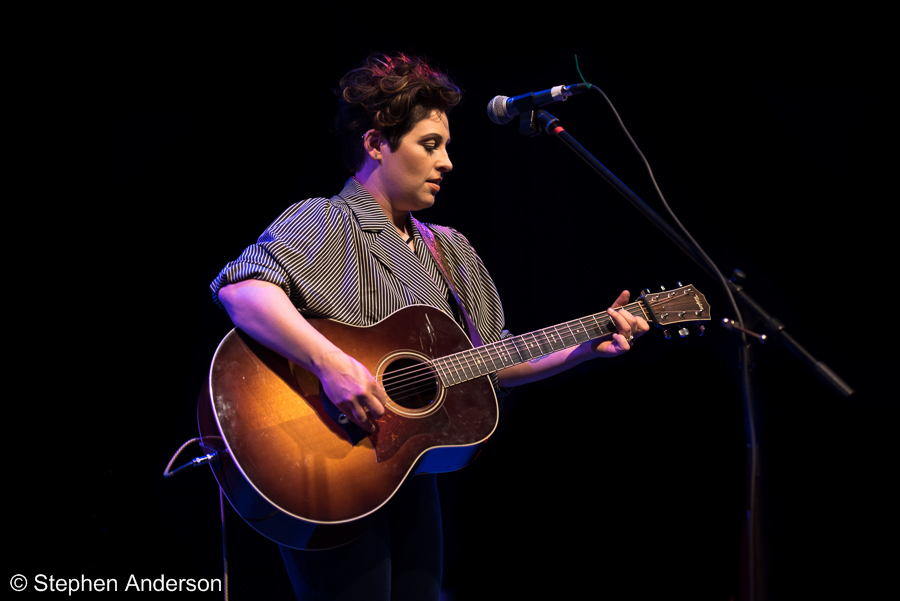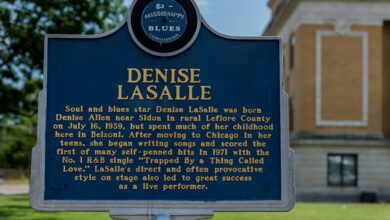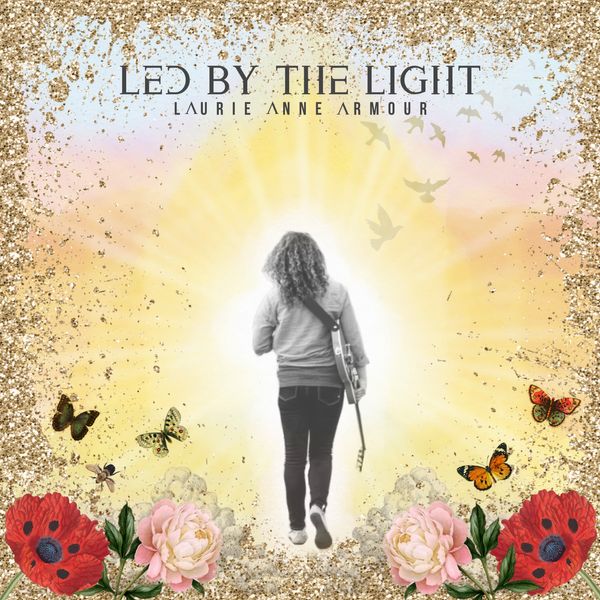Mississippi Blues Trail Series – Summers Hotel & Subway Lounge
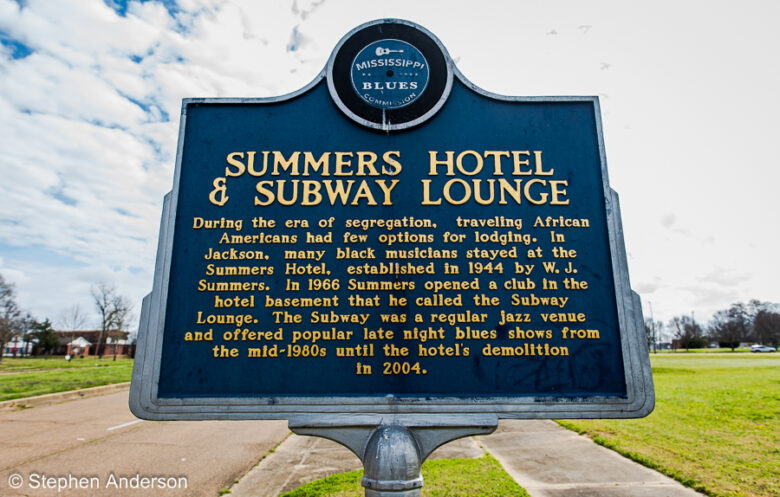 An Article by Brenda Germany
An Article by Brenda Germany
Photos by Stephen Anderson
Jackson, Mississippi is home to an amazing total of thirteen Blues Trail markers. As we continue our series of investigating the many outstanding places recognized for their contributions to the blues, the Summers Hotel and Subway Lounge are our destinations in this article.
The Summers Hotel was remarkable in several ways. It was one of two hotels available to African American travelers from the 1940’s to 1960’s. Originally a rooming house for white tenants known as the Maples, the three story brick building stood at 619 W. Pearl Street. In 1943, W. J. Summers, a prominent African American businessman, purchased and remodeled the building later reopening it as the Summers Hotel which he operated with his wife Elma. The hotel quickly became a popular stop, particularly for musicians touring the area including James Brown, Hank Ballard, and Nat “King” Cole.
In 1966 Summers enlisted Jimmy King, a local bandleader, vocalist and retired high school biology teacher to run the newly constructed basement lounge, which King christened the Subway. Starting out as a jazz club for the most part, then evolving into a late-night blues club, it was just as you might imagine – tiny, dark, smoke filled with a low stage, and most important of all, overflowing with intense, soul cleansing music. The menu featured buckets of beer and, from the house next door, King’s renowned “blues dogs” comprised of a hot, smoked sausage loaded with grilled onions, mustard, and chili that became an integral part of the full Subway Lounge juke joint phenomenon.
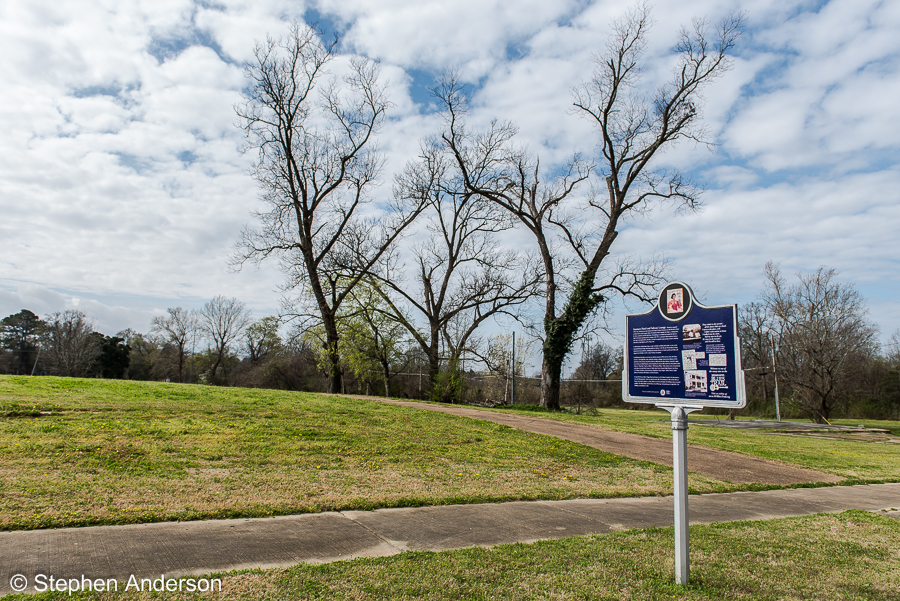 Top photo: Mississippi Blues Trail marker for the Summers Hotel & Subway Lounge in Jackson, MS; Above photo: The location of the Mississippi Blues Trail marker for the Summers Hotel & Subway Lounge in Jackson, MS
Top photo: Mississippi Blues Trail marker for the Summers Hotel & Subway Lounge in Jackson, MS; Above photo: The location of the Mississippi Blues Trail marker for the Summers Hotel & Subway Lounge in Jackson, MS
As late blues historian Robert Palmer explains it, “The word ‘juke’ came to America from West Africa where it was a word meaning ‘to have a good time.’ Down in this part of the country, a juke joint is just a place where people go to have a good time, and it’s associated with the blues.” A usual weekend might include either of the rotating house bands, drummer Dudley Tardo’s House Rockers or guitarist and vocalist King Edward’s King Edward Blues Band from midnight to until the early morning hours. Sometimes several more local singers and musicians joined the band during the night. Among the singers and musicians who regularly performed at the Subway during its 35-year history were such icons as Jessie Mae Hemphill, Junior Kimbrough, Big Jack Johnson, R.L. Burnside, Roosevelt “Booba” Barnes, Lonnie Pitchford, Patrice Moncell and Bobby Rush.
The Bobby “Blue” Bland hit “Members Only” personifies the appeal of such a place where downhearted people could escape to the company of fellow sufferers and why the blues began in the Mississippi Delta.
“Members only…it’s a private party. Don’t need no money…to qualify. Don’t bring your checkbook; bring your broken heart. ‘Cause it’s members only…tonight. Say you’ve lost your woman; say you’ve lost your man. You’ve got a lot of problems…in your life. We’re throwing a party…for the sad and lonely. And it’s members only…tonight.”
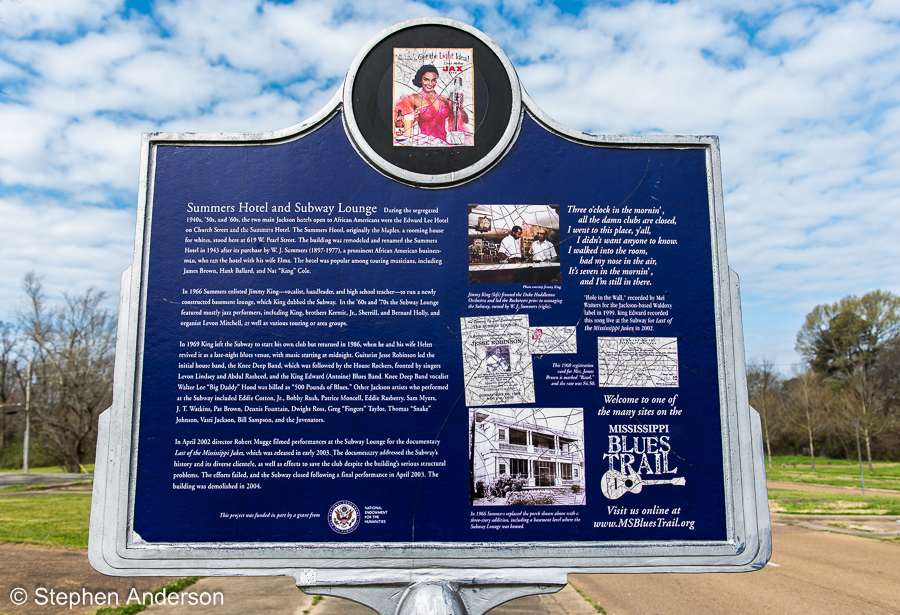 Mississippi Blues Trail marker for the Summers Hotel & Subway Lounge in Jackson, MS
Mississippi Blues Trail marker for the Summers Hotel & Subway Lounge in Jackson, MS
The Subway Lounge continued to operate long after the hotel went out of business, and was featured in the HBO documentary “Last of the Mississippi Jukes” directed by Robert Mugge.
Unfortunately, by 2004 the building was barely standing and efforts to restore the Subway Lounge were unsuccessful. The site was later cleared to make way for the Jackson Metro Parkway where passing drivers may have no idea that they are riding over the once sacred ground of the blues. The venues, the blues and those people who came together to juke each weekend are inseparable. Removing any of the three parts would certainly cause the blues to evolve in some way, just as it did when exported north to Chicago, Memphis, St. Louis or Kansas City. The storied juke joints of blues history may be disappearing, but the music born there, the camaraderie and healing created by them are immortal.
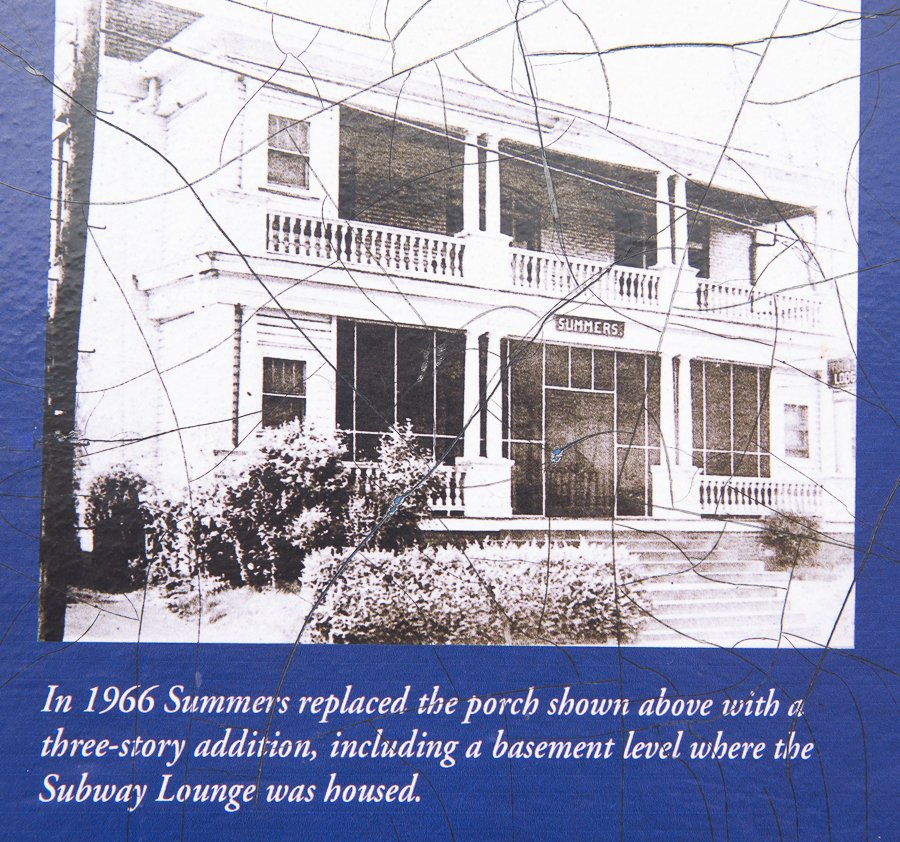 Summer Hotel in Jackson, MS prior to 1966.
Summer Hotel in Jackson, MS prior to 1966.
Credits:
Mississippi Blues Commission; MSNewsNow 2016; Mug-Shot Productions 2003
.
.
Page Designed & Edited by Johnny Cole
Additional Editing by Brenda Germany
© The Southland Music Line. 2021. All rights reserved
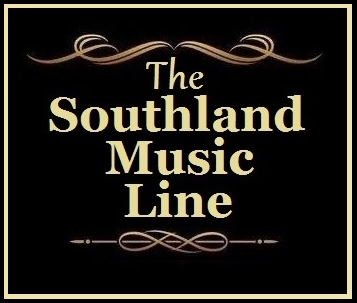
COPYRIGHT NOTICE: We welcome requests for permission to use content from The Southland Music Line website and Facebook page. Any shared articles or photos may not be altered, edited nor cropped and must include the appropriate copyrights of The Southland Music Line.



